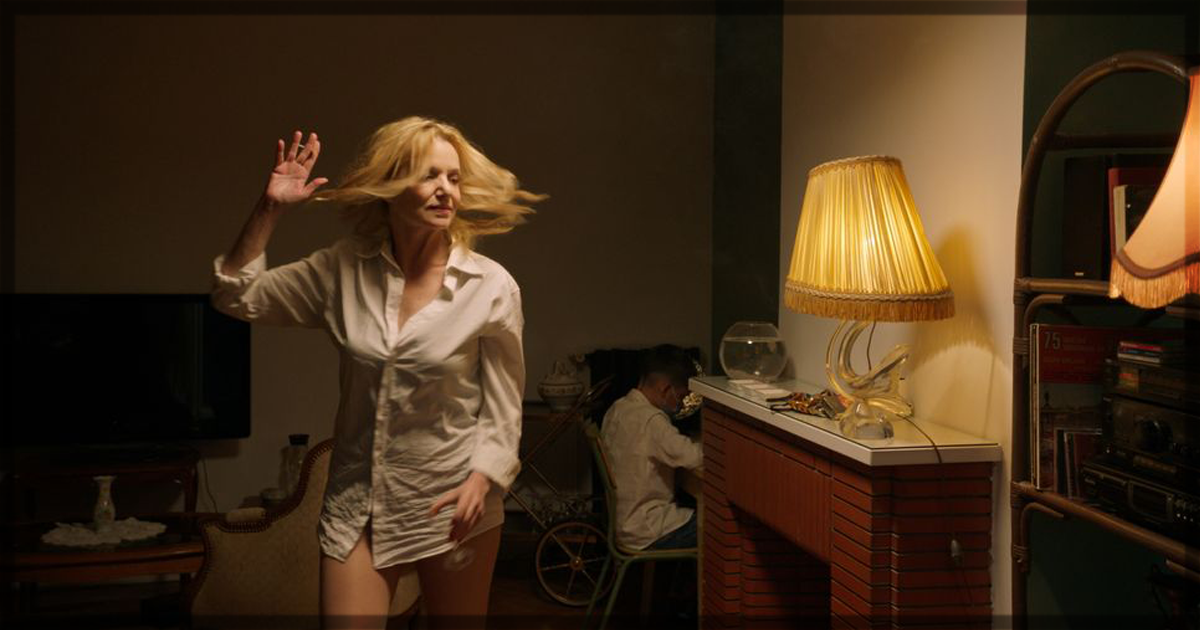Premiering in the Filmmakers of the Present competition of the recently concluded Locarno Film Festival, A Balcony in Limoges, French writer-director Jérôme Reybaud’s feature follow-up to his debut 4 Days in France (2016), is the kind of movie that one might describe as deceptive, or unforeseen at the very least, though perhaps that is really the intention, with the director peddling the story simply as a “meeting of two women without producing any speech or morals,” thus concealing its twisted emotional undercurrent. Reybaud’s last participation in the Swiss fest was three years ago, when he premiered his medium-length dramatic comedy Poitiers in its 75th edition’s Corti d’autore competition.
Clocking in at about 70 minutes, A Balcony in Limoges centers on two female quinquagenarians, whose reconnection may lead to a deeper relationship or to something else entirely. Gladys, played with an enigmatic allure by Fabienne Babe, is a free-spirited woman who lives in her car, has no steady job, has no access to proper healthcare, and refuses to accept any help, including from her lover Fabrice (Patrice Gallet), whom she often drinks and parties with. She had a son who died in his teens, and perhaps such a trauma results in her nihilistic existence. But things may just change (for better or worse is a separate concern altogether), as she runs into Eugénie (Anne-Lise Heimburger), an auxiliary nurse and a clean freak, in a parking lot. Gladys seems out of sorts in her car, so Eugénie, who’s about to see her doctor to extend her year-long sick leave caused by “bad neck problems,” insists on checking on the former’s health. The two women, it turns out, attended the same technical college together. Soon enough, Eugénie accompanies Gladys to her part-time cleaning job, and learns of her old friend’s fraught state.
Eugénie cannot hide her disdain for Gladys, but after their chance encounter, she also seems genuinely intrigued by the latter’s fringe, unbridled existence. Apart from attending to her teenage son, Antoine, who prefers to read and keep to himself, Eugénie chiefly leads a solitary life. She invites Gladys to her home, offers to repair her skirt and later makes her beautiful dresses, and relentlessly seeks stable work for her. Gladys, however, says she’s done slaving away. Even the Samaritan efforts that Eugénie does for Ukrainian and Afghan refugees, Gladys wittingly ignores. Despite their clashing ideologies, the two form an unlikely friendship alongside Fabrice and his elder friend Tony (Emilien Tessier). Together, they dance, drink, smoke, and have nice yet awkward conversations. All of which are visible to the philosophy professor living in a flat unit from across Eugénie’s balcony. The strange man, whose thoughts are only conveyed in voiceover, becomes the film’s de facto narrator, allowing Reybaud to reveal more expository details, which is also the limit of this narrative device.
Whereas Gladys is devoid of any sense of kinship with the people around her, if not with society at large, Eugénie maintains a calculated philosophy: the creation of “an Eden from within,” a strong belief in the power of sisterhood, community, and collective good, which, to some extent, Gladys takes advantage of, as she subsists on her newfound friend’s sense of altruism.
But is it really altruism or a savior complex disguised as generosity? Heightened by Babe and Heimburger’s deftly beguiling performances, Reybaud animates this political and philosophical inquiry by exploring the equally capricious personalities of his protagonists, and what happens when disruptive vulgarity collides with neat civility. Cinematographer Nicolas Contant extends the film with a pretty straightforward visual lexicon, relying on wide, economical compositions that seem to let us access every movement and action, enhanced by a blocking that feels particularly hammy. There’s also a panoptical feeling to it, especially in scenes that involve the titular balcony. This visual technique only harnesses the way Reybaud plots the narrative’s sinister subtext, with the confrontational aspects just always brewing in the background. Every detail is open and upfront, until the director destabilizes that assumption altogether, with a disorienting tonal shift in the film’s third act, which is of course meant to incite shocks that are more sensational than intellectual.
A Balcony in Limoges isn’t exactly textureless or neatly abstract, but it does feel like its dramatic cards don’t totally meet its philosophical preoccupations. Its visions of terror are temptingly banal and subtle but at the same time insular. As it reaches its grim coda, what mostly registers is the picture’s ironic edges than the insight it proposes. But at least it leaves us one useful tip: Never trust a clean freak.
A Balcony in Limoges recently played at the Locarno Film Festival.
Learn more about the film at the Locarno site for the title.


